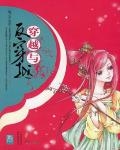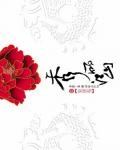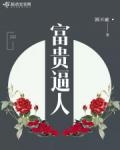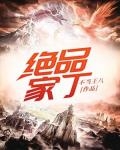Volume 1: Re:Zero -Starting Life as a Samurai Chapter 6: Lower-ranking warrior with an annual salary of 50 koku
Looking at the small bowl of porridge on the ground in front of him, Ogata let out a long sigh.
Muttering softly:
"I really want to eat meat..."
Although Ogata was a samurai, his life was actually very hard .
In terms of living standards, they are not even as good as some farmers.
Although the samurai were the ruling class during the Edo period, there were actually many levels of samurai.
The highest-ranking samurai is naturally the Shogun.
During the Edo period, the nominal leader of Japan was the emperor, but the actual supreme ruler of the country was the Tokugawa Shogun.
The samurai who were one level lower than the shogun were the daimyo of each domain.
The so-called "han" can be understood as the fiefdom of vassal states, and the senior samurai who ruled these hans were called "daimyo".
The Edo period followed the "shogunate system".
Shogunate and Han system - a system established by Tokugawa Ieyasu in which the shogunate and the feudal domains jointly ruled.
Under the shogunate system, the shogun was the supreme ruler of Japan and the shogunate was the country's highest political body.
The shogunate ruled over the feudal states throughout the country. The rulers of each feudal state were daimyo, who were loyal to the shogunate, and the shogunate implemented a system of alternating visits to the emperor.
The daimyo still had a great deal of independence, and they had administrative, judicial, military and taxation powers in their own territories.
To use a vivid metaphor, the Shogun is similar to the Zhou Emperor of China, the ruler of the world.
The daimyo of each fiefdom were similar to the princes granted fiefdoms by the Zhou emperor, and they had extremely high autonomy within their respective fiefdoms.
The Shogun directly controlled a quarter of the country's land.
The other three quarters of the land was divided among the daimyo.
Lower than the daimyo were the samurai without fiefdoms.
Even the samurai who did not have fiefs were divided into quite a few levels.
Ogata was a lower-ranking samurai.
Ogata was a lower-ranking samurai of the Hirose Domain.
Hirose Domain was a domain in the Izumo region. It was a small domain with a small territory and little presence in the country.
Ogata could only receive 50 koku of salary per year.
Stone is a unit of volume.
The so-called annual salary of 50 koku means that Ogata can receive 50 koku of rice from the feudal government every year.
One stone of rice is enough for an adult male to eat for a year.
At first glance, Ogata's annual salary seems to be very high. The rice he receives every year is enough to feed 50 adult men for a year.
However, in reality, Ogata's salary was so low that he could barely support his family of three.
Because Ogata still needs money to buy daily necessities such as firewood, rice, oil and salt.
So he had to exchange his wages - that is, this pile of rice - for money.
If you take rice to exchange for money with merchants, you will inevitably be forced to lower the price.
As a result, 50 dan of rice was barely enough to feed a family of three.
However, since Ogata's parents had both passed away, he was the only one left in the family.
Therefore, if he lived alone, a salary of 50 koku would still be enough for Ogata to survive.
It’s just that - I won’t be living a very comfortable life.
Ogata could only eat porridge for three meals a day.
If he didn't eat porridge every day, Ogata might face the danger of starving to death...
Struggling to make ends meet - this was the life of Ogata, a lower-ranking samurai.
Even if Ogata had money, he couldn't eat meat.
Because ancient Japanese didn't eat meat at all.
You can't buy meat even if you have money.
In the ancient Japanese diet, the only thing related to meat was seafood, mainly fish.
It was not until more than half a century later, after the founding of Japan at the end of the Edo period, that the Japanese gradually began to eat meat.
…
From the time he picked up his chopsticks to the time he put them down, Ogata only opened his mouth four times.
He only opened his mouth four times and finished the small bowl of porridge.
After drinking the warm porridge, the torturous feeling of hunger slowly dissipated.
Although I no longer feel hungry, I don’t feel full either.
After dinner, Xu Fang fell into a state of doing nothing.
It is now the Edo period, the late 18th century.
Naturally, there were not many entertainment activities for Ogata to entertain himself.
Although if you really want to find some fun, you can still find many pleasant things to spend the night in this era.
But these pleasant things, without exception, require a lot of money.
Ogata, who lived in a penniless house and had to rely on porridge for every meal, naturally could not afford the money to enjoy a rich "night life".
With nothing to do, Ogata simply sat in a corner of the room, holding the only two valuable things in his house - his two knives, staring at the empty house in a daze.
After inexplicably traveling to the Edo period, Obe participated in three consecutive sword fights. His nerves were always in a highly tense state and he had no time to think about anything else.
Now that I'm back home and have nothing to do, my nerves, which had been tense, have gradually relaxed .
As soon as his nerves relaxed, all kinds of strange thoughts popped up in Ogata's mind one after another.
"Why did I suddenly travel to Japan's Edo period..."
Ogata whispered in a low voice that only he could hear.
Before traveling to the Edo period, Ogata's memory was frozen on the scene of him reading in his study.
Ogata likes reading, especially history books, and is very interested in European history.
Although I love European history, I also have a certain understanding of Japanese history.
Ogata only remembered that he was reading a book in the study. As he was reading, he suddenly felt sleepy, so he closed the book and lay down on the table to take a nap.
When he opened his eyes again, he came to the Edo period and became Ogata Noriyoshi, fighting with others in the Sakakibara Sword Hall.
Ogata doesn't even know whether the era he is living in now is the Edo period in Japan on Earth.
The era he is in now is a parallel world, or the Edo period of Japan in another earth - such a thing is not impossible to happen.
However, according to the memory in his mind, the historical development trajectory of the era he is in now is completely consistent with the historical development trajectory of the Edo period on Earth.
It was Tokugawa Ieyasu who won a great victory in the Battle of Sekigahara and established the shogunate in the Edo region, ushering in the Tokugawa shogunate era in Japan.
This year is the first year of Kansei, which is 1789 in the Gregorian calendar.
The "Tianming Great Famine" that caused countless deaths and injuries had just passed.
The current shogun in office is the eleventh shogun, Tokugawa Ienari, who has just ascended the throne.
All the historical memories that "Hara Ogata" brought to Ogata are completely consistent with the Japanese history that Ogata learned from books on Earth.
Judging from all the information currently known, the era that Ogata is currently living in should not be the Edo period of some parallel world.
But this conclusion is not absolute.
After all—some events might happen tomorrow that are completely inconsistent with the Japanese history recorded in the books on Earth.
How did he get here? Where did the system in his brain come from? Is the era he is living in now the Edo period of a parallel world? After thinking about this question for a while, Ogata gave up.
Because these are questions that you may not be able to figure out no matter how hard you try.






